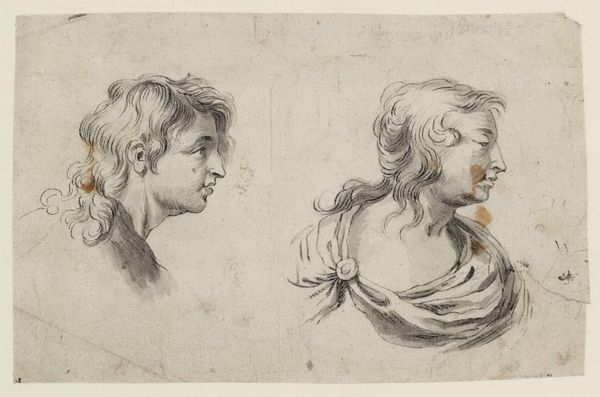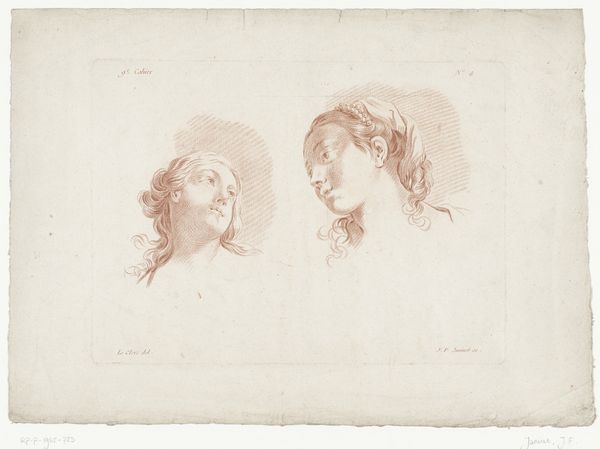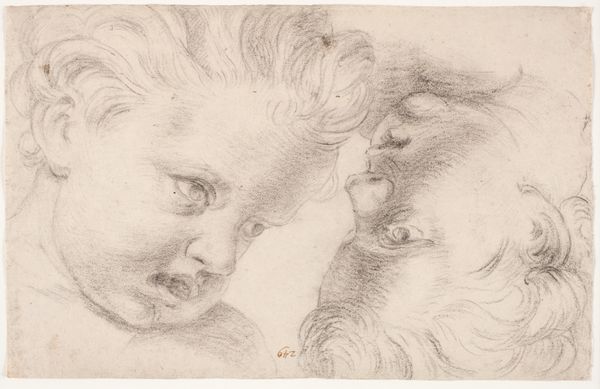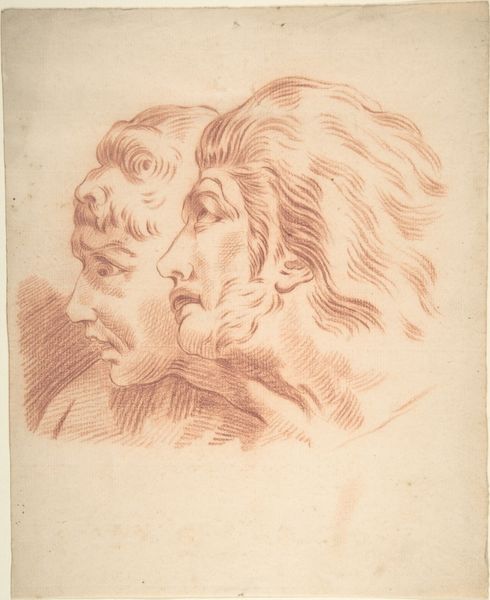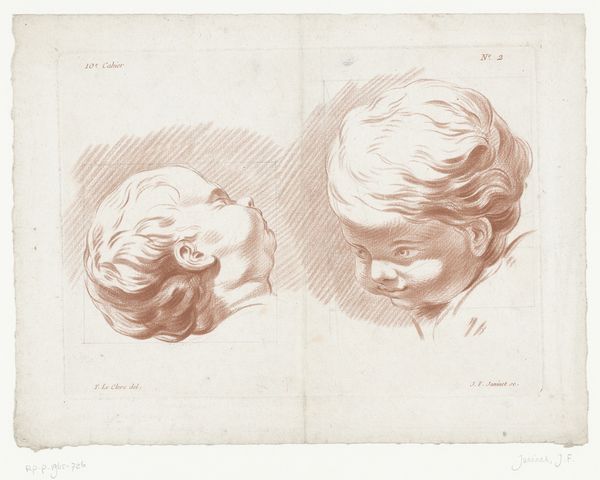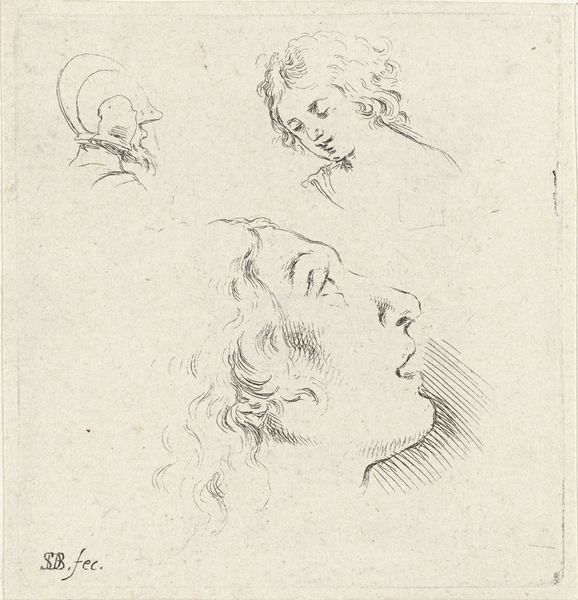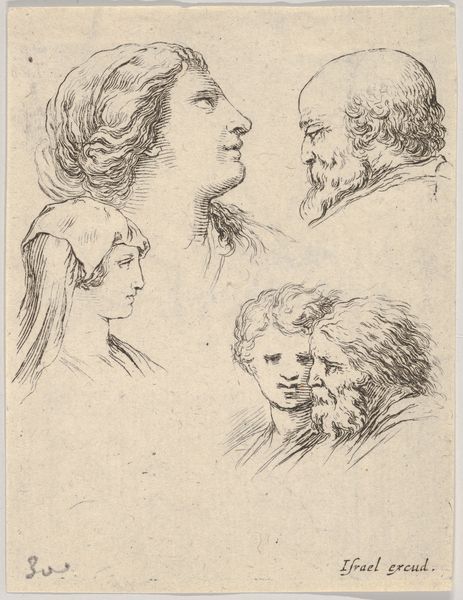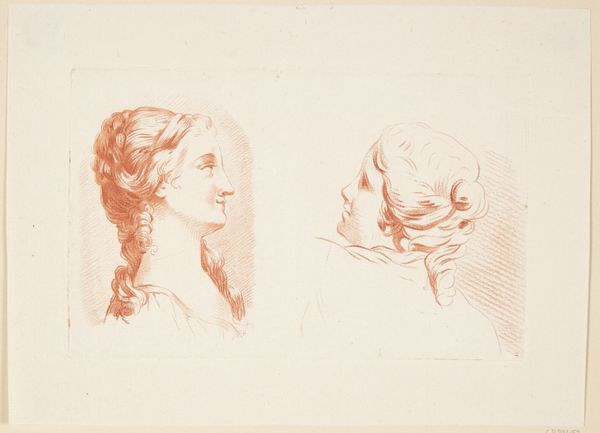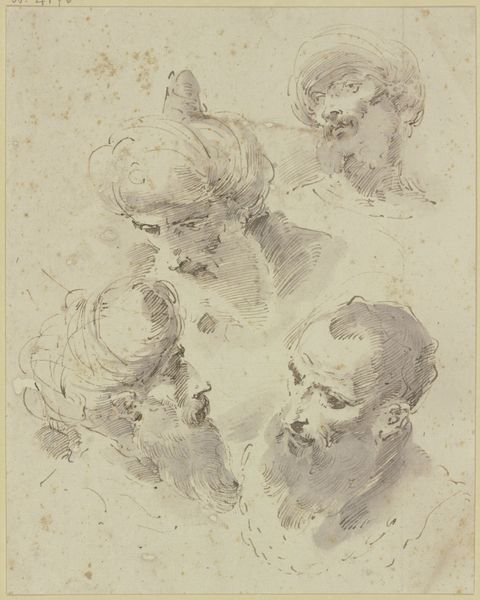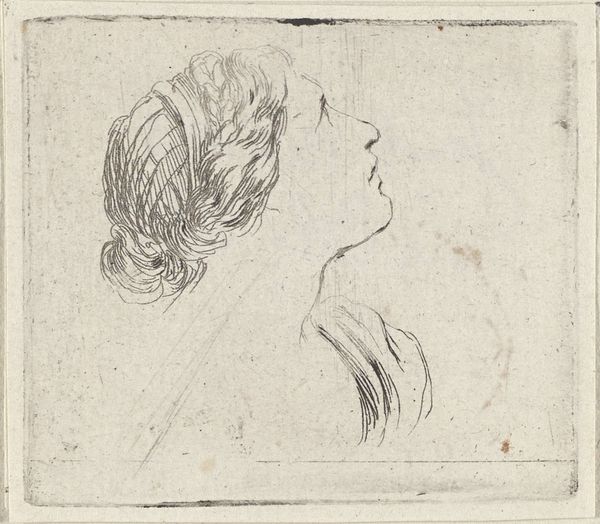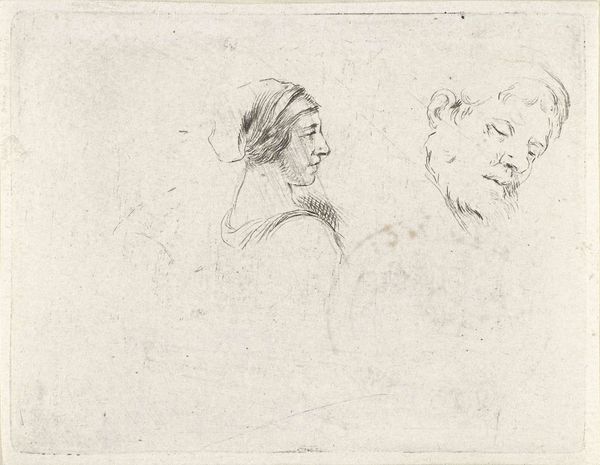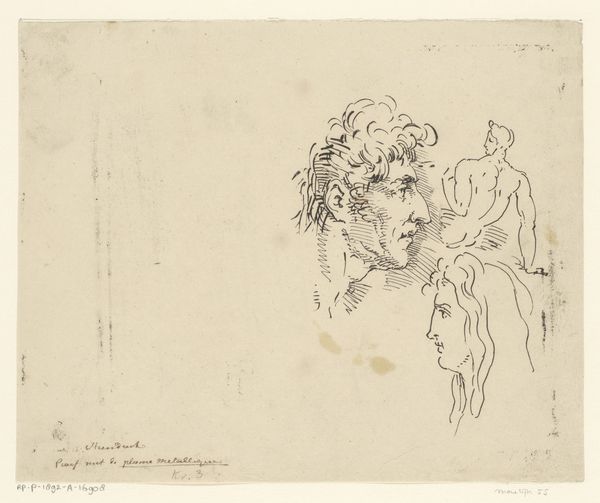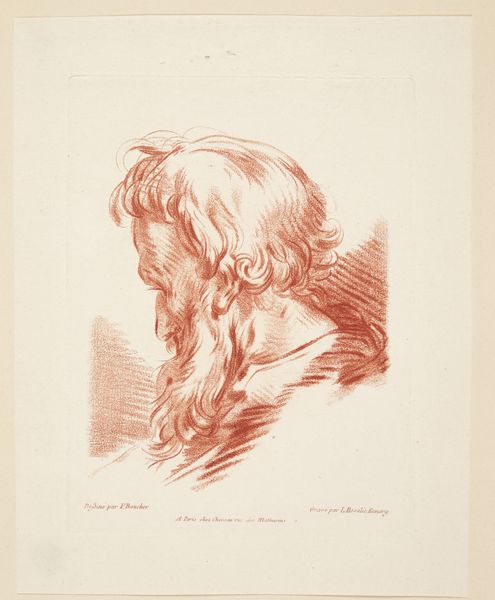
drawing, print, paper, ink
#
portrait
#
pencil drawn
#
drawing
# print
#
dog
#
paper
#
ink
#
pencil drawing
#
group-portraits
#
rococo
Dimensions: height 249 mm, width 314 mm
Copyright: Rijks Museum: Open Domain
Editor: Here we have "Study of Heads and a Dog's Head," a drawing and print by Gilles Demarteau from the late 18th century. It's quite striking how the faces are arranged; they seem to almost blend into one another. What can you tell us about this piece? Curator: The material choices – the ink, the paper, the printing process itself – speak volumes about artistic production in Demarteau’s time. Think about the labor involved in creating a print like this. Each line is carefully etched or engraved, allowing for reproducibility and wider consumption of the image. It moves art from the unique object to something more accessible, a commodity even. Does that change your interpretation? Editor: It does make me think differently. I was focused on the artistry of the drawing, but now I'm considering it as a product of labor, disseminated to a wider audience. Did this process elevate or cheapen the artistic merit at the time? Curator: That's the central question, isn’t it? Consider how this kind of printmaking democratized access to imagery, spreading ideals of beauty and taste to a growing middle class. But also, consider the potential exploitation of the printmakers themselves. Were they considered artists or artisans? Editor: It blurs those lines. So, analyzing the materials and production helps reveal those tensions and shifts in social value. Curator: Precisely. It shifts our focus from the individual genius to the systems and people that bring art to life. Understanding this reveals not only art but its context within social conditions of possibility. Editor: I see how focusing on the materiality and production reveals so much about its time. Thanks! Curator: My pleasure, that kind of understanding allows the art object to speak much more clearly about human interaction, production and culture.
Comments
No comments
Be the first to comment and join the conversation on the ultimate creative platform.
